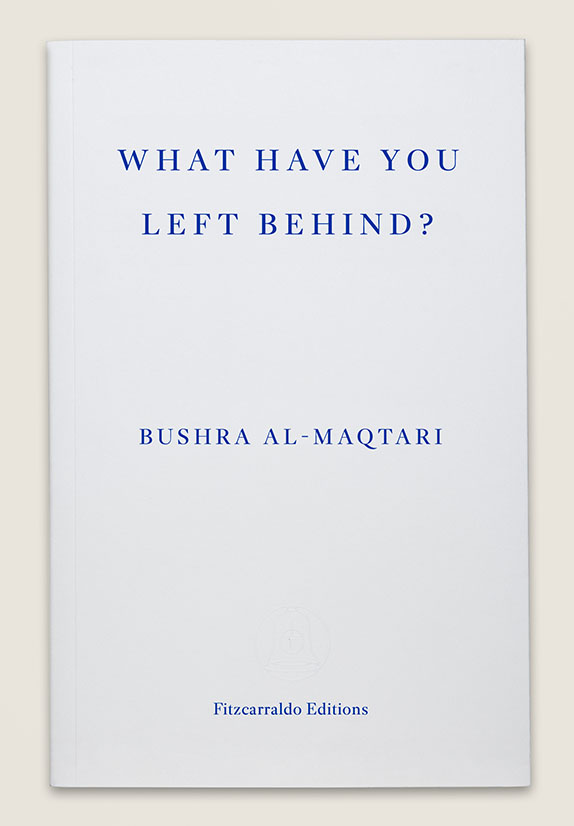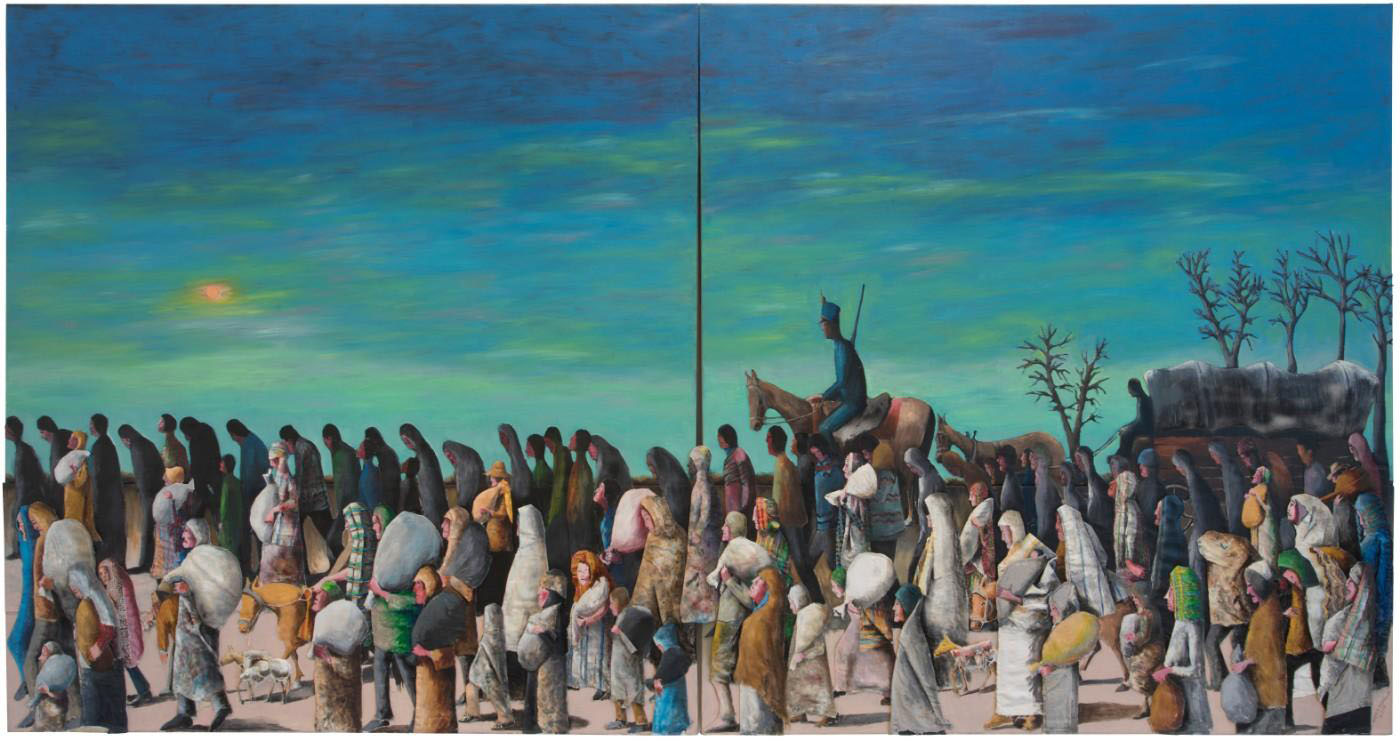What Have You Left Behind? by Bushra al-Maqtari
Translated from the Arabic by Sawad Hussain
Fitzcarraldo Editions, 2022
ISBN 1804270016
Saliha Haddad
Watching war unfold from a distance is tough and painful but deciding to undertake the even greater risk of embedding oneself in the midst of one that is raging, in order to document the testimonies of its civilian victims, is a feat certainly not for the faint-hearted. And yet, this is exactly what Yemeni writer and activist Bushra al-Maqtari did when she set out to write What Have You Left Behind? — an unusual field report, replete with oral histories translated into English by Sawad Hussain. It is a book that appears neither interested in the military strategies of men at war nor the historical delineations of either warring side. Instead al-Maqtari painstakingly assembles a record of poignant and personal accounts of Yemenis living under fire since late 2014, when the war between the Arab coalition-backed government and the Houthis began. The book is an homage to the memories of the fallen and a commemoration of the survivors left to pick up the pieces.

Al-Maqtari’s debut novel Behind the Sun, published by The Arab Cultural Center (2012), focused on forced disappearances in Yemen. It came on the heels of her political participation in Yemen’s 2011 revolution, in which she helped lead a protest march from her native city of Taiz to Sanaa. In response to her work, Yemeni clerics issued a fatwa against her and called for her to be excommunicated in January 2012.
In a November 2021 report, Assessing the Impact of War in Yemen, the UN found that an estimated 377,000 civilians had lost their lives since the 2014 war started. It is for those who survived that al-Maqtari risks her own life as she spends two years speaking to her compatriots on both sides and gathering over 400 testimonies.
Inspired by Nobel Prize Laureate Svetlana Alexievich’s book The Unwomanly Face of War, in which the author collects Soviet women combatants’ memories of the Second World War, al-Maqtari dresses in disguise, and alternates between the victims of the Houthi militia and those of the Arab-led coalition, to bring to the fore, with unwavering neutrality, the stories of non-combatant Yemenis recalling the direct and indirect horrors they witnessed and survived, to emerge into a world that continues to forget them. The book, as she explains in her introduction, is a testament “to ward against forgetting, against feigning ignorance, against ignorance.”
The brief testimonials describe the horror witnessed and experienced by men and women, young and old in a war they had no hand in or control over, and where those who survived the shelling were destined to eternal trauma, haunted by nightmares and memories of the dead that they are unable to properly grieve as they chase semblances of security within an unstable normalcy.
In the first of the book’s testimonials entitled “But It Fell,” Ahmed Hammeed Sayf is haunted by the shelling on his brother’s house that killed his wife and three of his young children; it also claimed his neighbors including their two children.
My brother is still tormented. He can’t sleep, he can’t forget. He’s preoccupied with finding treatment for his injured son. I carry my brother’s sorrows on my back, I enter the house and the memories come rushing back. I remember my brother’s children and his wife, their laughter, the noise they would make, our beautiful life together. Damn the coalition and whoever came with them to our country, damn every side that has murdered Yemeni people.
Now that most of the killing has stopped, survivors have to contend with a bleak present in which many live in inhumane conditions having lost not only their jobs but the roof on top of their heads in a country which continues to face famine, water shortages and unending violence. In a 2015 essay entitled “War Makes Its Presence Felt on Yemen,” al-Maqtari warned of a civil society under threat of annihilation.
“No one comes to our neighborhood. No aid organizations, no journalists — they all fear the shells and snipers’ bullets. They no longer care about what happens to us,” Hajja Nadheera AbNadheera says as she details life in the warzone of al-Zahra neighborhood in Taiz, once the cultural capital of Yemen. She lost her husband when the family wasn’t allowed to get him to hospital for treatment.
Following the publication of What Have You Left Behind? al-Maqtari was awarded the Johann Philip Palm award for Freedom of Speech and Press. The book is essential if difficult reading, yet her writing and the testimonies she gathered compel the reader to listen to Yemeni voices, voices that serve as reminders of the scale of human tragedy behind the headlines of one of the world’s least reported conflicts.





I want to write a thesis on this novel. This is one of the most influential figures in the post-war literature of a Third World country…
AL Muqtari presents the circumstances, the traumatic lives of the Yemeni people.